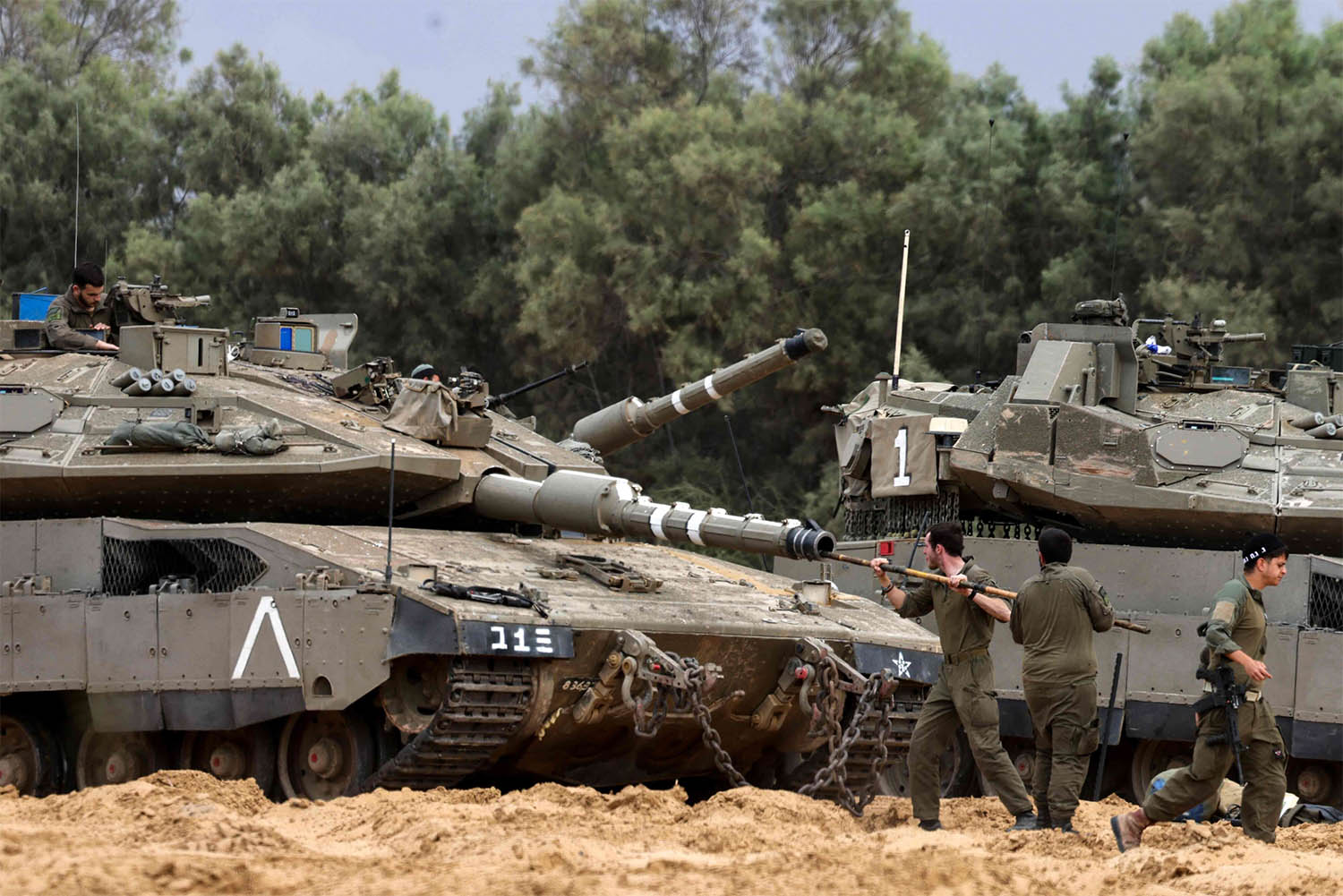Israeli leadership votes to seize Gaza, holds its territories
JERUSALEM - Prime Minister Benjamin Netanyahu's security cabinet voted to scale up the offensive against Palestinian militant group Hamas in Gaza to the point of seizing the entire enclave and holding its territories, an Israeli official said on Monday.
A report by Israel's public broadcaster Kan, citing officials with knowledge of the details, said the new plan was gradual and would take months, with forces focusing first on one area of the battered enclave.
Such a timeline could leave the door open for a ceasefire and hostage release deal talks ahead of a visit by US President Donald Trump to the region next week, according to security cabinet minister Zeev Elkin.
"There is still a window of opportunity until President Trump concludes his visit to the Middle East, if Hamas understands we are serious," Elkin told Kan on Monday.
Already in control of around a third of Gaza's territory, Israel resumed ground operations in March after the collapse of a US-backed ceasefire that had halted fighting for two months. It has since imposed a total blockade of aid into the enclave.
Elkin said that rather than launching raids in specific areas and then leaving them as the military had done so far, the Israeli forces will now hold the territories they seize, until Hamas is defeated or agrees to disarm and leave Gaza.
Hamas has ruled out such calls. Israel has yet to present a clear vision for post-war Gaza as it faces international pressure to end a campaign that has displaced most of Gaza's 2.3 million population and left it depending on aid supplies that have been dwindling rapidly since the blockade.
The Israeli official said that the newly approved offensive plan would move Gaza's civilian population southward and keep humanitarian aid from falling into Hamas hands, though the blockade will not be lifted yet.
The United Nations on Sunday rejected what it said was a new plan for aid to be distributed in what it described as Israeli hubs.
On Monday, Jan Egeland, Secretary-General of the Norwegian Refugee Council, said on X that Israel was demanding that the UN and non-governmental organisations shut down their aid distribution system in Gaza.
CALL-UP ORDERS
"They want to manipulate and militarize all aid to civilians, forcing us to deliver supplies through hubs designed by the Israeli military, once the government agrees to re-open crossings. NRC will stand by our humanitarian principles and will, with all our peers, refuse to take part in this new scheme."
Israel's Chief of Staff Lieutenant General Eyal Zamir said on Sunday that the military has already begun issuing tens of thousands of call-up orders for its reserve forces, looking to expand the Gaza campaign. He later warned ministers that aid must be let into Gaza soon, according to Kan.
The war was triggered by the Hamas October 7, 2023 attack on Israel, that killed 1,200 people, mostly civilians, according to Israeli tallies, and saw 251 taken hostage into Gaza in the deadliest day for Israel in its history.
Israel's ground and air campaign in Gaza has since killed more than 52,000 Palestinians, most of them civilians according to local health authorities, and left much of Gaza in ruins.
Up to 24 of the 59 hostages still held in Gaza are believed to be alive. Families fear that the fighting will endanger their loved ones while critics say Israel risks being drawn into a long guerrilla war with limited gains and no clear strategy.
Successive surveys have shown dwindling public support for the war among Israelis, many of whom prefer to see a ceasefire deal reached and more hostages released.
Hamas says it will release hostages only as part of a deal that will end the war and see Israeli forces withdraw from all of Gaza.





